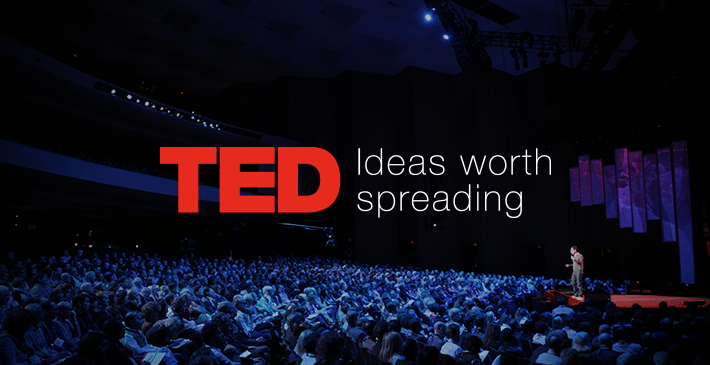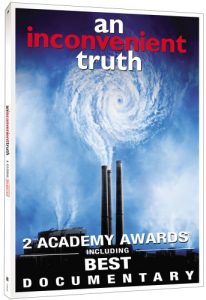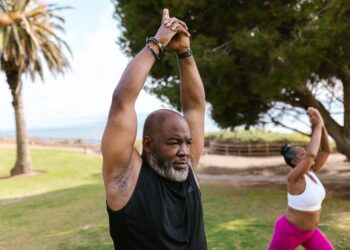After watching a talk, I was so moved by it that I quickly went to their official website to check out more videos. Pretty soon, I was hooked.
TED stands for Technology, Entertainment, and Design. It was conceived by Richard Saul Wurman, who thought of hosting a conference where people in the above fields can collaborate and share ideas. They invited people to give a talk lasting no more than 18 minutes each. Previous notable speakers include Bill Clinton, Al Gore, Bono, and Bill Gates among others.
Initially, the talks weren’t meant to be viewed publicly through online videos, but as their slogan is Ideas Worth Spreading, curator Chris Andersen decided it would be best to share the talks online to reach the masses. Initially, they were unsure if it would work, but today, the number of views has reached a total of 1 billion, with an estimate of 1 million views per day.
Although you can see many TED talks in YouTube and other online video platforms, the best way to access them is through their official website where talks are organized in each category and by other filters, such as most recent or most popular.
While initially the talks were mostly about design and technology, TED talks has now expanded into other fields such as Arts, Music, Dance, and Philosophy. Because their selection process is such that only the best are being showcased in their website, it’s quite challenging to be picking out only a few, but here are some that I found to be the most inspiring.
My Stroke of Insight by Dr. Jill Bolte Taylor
This was the first TED talk I viewed, and if you watch this talk, you’ll know why it’s at the top of my list. Dr. Jill is a neuroscientist who suffered a stroke. In the talk, she narrates her stroke episode and how the left hemisphere of her brain was temporarily shut down, leaving only her right hemisphere to function.
As a scientist who studies the brain, she got a first-hand view of what it’s like to suffer from a stroke attack and was experiencing the stroke from the ‘inside’ where she can see neurons and nerves. (This part alone is already mind-blowing, but it gets even better).
The way she tells her story is brilliant: humorous at times, although it was a harrowing life or death situation; her recovery is poignant, taking 8 years in total for a full recovery with her mother who she calls her ‘angel’ who refused to give up on her and kept positive everyday for those years where she lost the ability to function normally.
During her recovery, it took some time to regain her left brain functions of language and math and was barely able to speak and communicate her needs; on the other hand, she became more sensitive and could feel when someone’s energy isn’t beneficial to her. She mentions about how a nurse can be a ‘godsend’, being there for her while other doctors or nurses can be ‘cruel’, not even making eye contact.
The insight she shares from a stroke patient who can barely speak but is aware of what’s going on around her is awe-inspiring and can be truly helpful for those who’ve loved ones suffering from a stroke. Her near-death experience is by all accounts spiritual in nature, but because she is a neuroscientist who has letters before and after her name, people took notice and listened instead of dismissing her as another new-ager who wants to rant.
https://www.youtube.com/watch?v=8wkR-PSIu4A
An Inconvenient Truth by Al Gore
I remember this became a hit documentary seeping through to a wider audience. I first got a glimpse of it while on a plane and instead of watching a blockbuster CGI-packed movie, I chose this instead. You won’t be disappointed: Al Gore was charismatic and very compelling in this talk, and although you might not like him for political reasons, you’ll put that aside while listening to this talk.
‘An Inconvenient Truth’ brought environmental issues to the masses and finally a picture, that although isn’t pretty, is still a clear enough image that inspired a lot of people to take heed and act.
Thanks to Gore’s competent team who helped put together statistics, technology, and stage props- which all combined made this talk the ‘talk of the town’ for quite some time. This 18-minute talk would then be the spring board for a documentary of the same title.
This contribution to environmental issues earned Gore a Nobel Peace Prize and a higher popularity rating than then President George W. Bush who beat him in the 2000 U.S. presidential elections.
https://www.youtube.com/watch?v=Cpc-t-Uwv1I
Why we do what we do by Tony Robbins
Tony Robbins is a successful motivational speaker who can easily fill big stadiums with his speaking engagements. You can see why when you listen to him deliver this talk. He is a natural, engaging speaker who comes off as very genuine; he’s also not scared to share his opinions, even chiding Al Gore (who was in the front row while he was delivering this talk) about why he lost the presidential elections.Equally interesting is Gore’s reaction.
His talk will give you a glimpse of what is behind our actions, reactions, and behavior and empower you to be more aware of how you can be in control of them at all times. He is very convincing, and there’s never a time when you’ll feel bored listening to him; he just knows how to engage listeners and capture their attention from start to finish.
There are so many other inspiring TED talks, and they keep adding a video on their website on a daily basis. Hopefully, these 3 we shared here will make you interested enough to check some of them out. With TED conferences happening every year and more TED offshoots such as TEDx being started left and right, it’s nice to know that there’ll be no shortage of these inspiring and informative videos. If you want to check out the talks, simply visit their official website www.TED.com.








